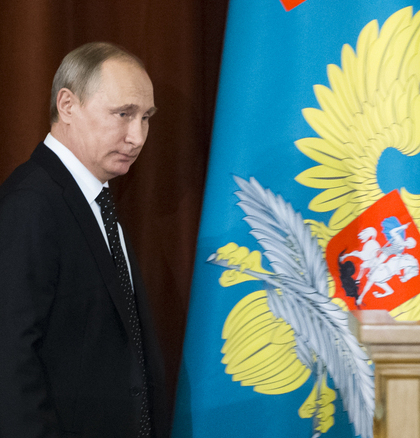EU extends sanctions against Russia as it seeks end to war in Crimea
Economic sanctions were extended against Russia on Friday as the European Union wearied of delays in bringing peace to eastern Ukraine. They will be kept in place until January 31, 2017, because the terms of the Minsk peace deal agreed last year were “not fully implemented”. The decision, which had been widely expected, came after French president Francois Hollande and German chancellor Angela Merkel briefed fellow EU leaders on the progress of the Minsk agreements at a summit this week. Russia has already responded by extending its own tit-for-tat sanctions on Wednesday.
What goes around, comes around. Sanctions continue until Minsk agreements are fully implemented
Lithuanian president Dalia Grybauskaite
The measures target the oil, financial and defence sectors of the Russian economy and were first imposed after the shooting down of Malaysia Airlines flight MH17 in July 2014, blamed on pro-Moscow rebels in the Crimea peninsula. The sanctions, as well as Moscow’s own embargo on EU farm products, have damaged the Russian economy, pushing food prices up and quality down, although it has given a boost for some domestic producers. However, it is not clear how long the EU measures will continue as some countries, such as Germany, Italy and Hungary, are fearful of getting locked in a damaging stand-off with Russia.
In two years, they failed to reach the desired result – there is no disastrous economy slump in Crimea or in Russia as a whole, there is no social dissent or civil disturbances. All their steps have only mobilized and united Russian society
Crimean deputy prime minister Ruslan Balbek

crimea sanctions